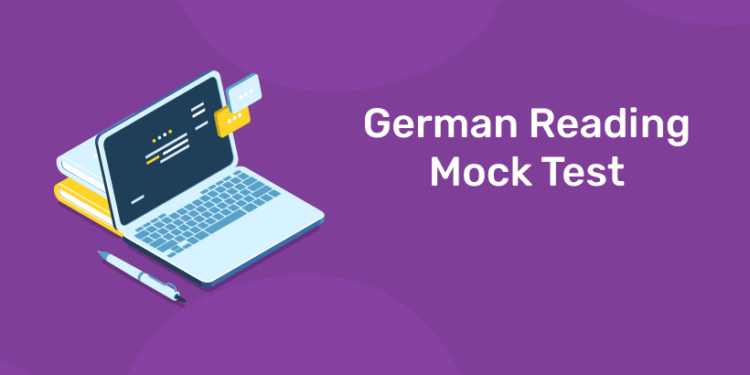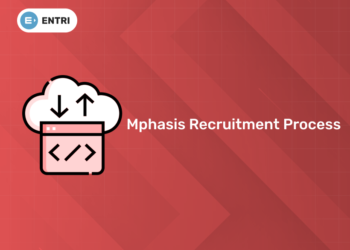Table of Contents
Learning the German language is an enriching journey filled with opportunities for personal and professional growth. In this language adventure, reading comprehension emerges as a pivotal skill, serving as the bridge to a world of literature, culture, and knowledge. Whether you’re gearing up for an exam, like the renowned Goethe-Zertifikat, or simply aiming to become proficient in German, excelling in the reading section is a significant milestone on your language learning journey. In this comprehensive guide, we’re here to be your compass, navigating through the intricacies of the German reading mock test. We’ll provide you with an arsenal of strategies, tips, and resources that not only help you pass the test with flying colors but also ensure that your journey to reading mastery is a fulfilling and enjoyable one.
German Reading Mock Test – Insights
Reading proficiency is your window to a treasure trove of German literature, culture, and information. It allows you to explore everything from classic novels and historical texts to contemporary news articles and business reports. Reading in German not only enhances your language skills but also deepens your understanding of the culture and society. Reading in German isn’t just a skill; it’s a journey into a world of knowledge, art, and culture. It’s the key to understanding the language in all its richness and complexity.
German reading is a multifaceted journey. It enhances your language skills, provides profound cultural insights, offers a historical context, and keeps you connected with the ever-evolving culture and society of German-speaking regions. It’s not just about words on a page; it’s a transformative exploration of language and culture.So, whether you’re preparing for a test, expanding your horizons, or simply enjoying the pleasure of reading, remember that reading in German is not just a learning process; it’s an adventure.
German Reading Mock Test – Significance
1: How do you say "Good Morning" in German?
The German reading mock test stands as a significant milestone on the path to language proficiency. This assessment isn’t merely a series of questions and passages; it’s a tool designed to gauge your ability to understand and interpret written German texts. These texts are a window to a world of knowledge, covering a broad spectrum of subjects, including literature, science, history, and current events.
- It can range from concise paragraphs that pack a punch of information to lengthy articles that delve deep into their topics.
- Your task, as a test-taker, is to embark on a reading journey through these texts, all while keeping a vigilant eye on the nuances, details, and underlying themes.
- The ultimate challenge is to answer questions that test your comprehension, revealing not just your ability to read but also your capacity to delve into the depths of written German communication.
- The German reading mock test, therefore, isn’t just an exam; it’s a gateway to becoming a skilled and confident reader of this fascinating language, offering access to a wealth of German literature, culture, and information.
- It’s a step toward language mastery that allows you to explore classic novels, stay informed about the world, and connect with the cultural essence of German-speaking regions
LEARN GERMAN LANGUAGE! ENROLL TO GET FREE DEMO VIDEO !
A Literary Adventure
- When you read in German, you embark on a literary adventure that spans centuries.
- One can delve into the works of literary giants like Goethe, Kafka, and Hesse.
- The beauty of their words, often lost in translation, comes alive as you read their masterpieces in the original language.
- Reading in German provides profound cultural insights. You gain an understanding of the German way of life, from traditions and values to social norms and historical events.
- It’s like stepping into the heart of a culture, where you not only learn the language but also the essence of the people who speak it.
Contemporary Relevance
- German is very much a living language, and reading in German allows you to connect with the contemporary world.
- One can stay informed about current events, explore modern literature, and follow business and scientific developments. Reading in German makes you a part of the global conversation.
- Reading is a powerful tool for language acquisition.
- It exposes you to vocabulary in context, sentence structure, and diverse writing styles. As you read, you internalize the language in a way that other forms of learning can’t quite replicate.
Linguistic Proficiency
- Reading German text is like exploring a linguistic kaleidoscope. It exposes you to diverse vocabulary, sentence structures, and writing styles, significantly boosting your language skills.
- The more you read, the more familiar you become with the intricacies of the German language. You start to recognize patterns, idiomatic expressions, and the nuances of word usage.
- This linguistic proficiency not only aids in comprehension but also empowers you to communicate effectively and eloquently in German.
Cultural Insights
- German reading provides a window into the culture, customs, and societal values of German-speaking regions.
- As you immerse yourself in German literature, you encounter stories, characters, and situations that reflect the cultural fabric.
- Whether it’s the celebration of Oktoberfest, the exploration of the German work ethic in literature, or the depiction of historical events, you gain profound cultural insights.
- You start to understand the values, traditions, and everyday life of the people. It’s like having a backstage pass to the rich tapestry of German culture.
Historical Context
- Reading different eras of German literature is akin to time travel through words. Each literary period offers a unique perspective on history, allowing you to journey through the social, political, and intellectual developments of the time.
- The Romanticism of Goethe and Schiller, the turbulence of the World Wars depicted by authors like Remarque, and the post-reunification literature all provide historical context.
- By reading these works, you not only gain historical knowledge but also witness how language, thought, and society evolved over time.
Speak German Fluently – Your Future Starts Here!
Join our interactive German courses designed for all levels. Gain the skills to communicate effectively and open doors to new cultures and careers.
Start Learning GermanGerman Reading Mock Test – Sample Papers
As you embark on the journey of preparing for the German listening mock test, you’re likely on the lookout for invaluable resources to bolster your confidence and readiness. And you’re in luck because mock tests are your secret weapon for success. These practice assessments provide the ideal training ground, equipping you with the skills and confidence needed to excel in your German listening mock test. Each mock test you conquer brings you one step closer to your ultimate goal: acing the real deal.
- To become well-acquainted with the format of the German listening mock test, it’s wise to utilize sample listening materials and practice tests available both online and in textbooks.
- These resources are thoughtfully designed to mirror the structure and style of the actual test.
- By working through sample tests, you gain insight into the types of questions you’ll encounter and the expected level of difficulty. This preparation not only reduces test-day anxiety but also hones your test-taking skills, providing you with a valuable advantage when it’s time to sit for the real exam.
- Whether you’re in the early stages of your preparation or seeking to fine-tune your skills, these sample papers are your trusty companions on the journey to German listening mastery.
- Entri will offer you the opportunity to not only understand the format of the test but also to practice, learn, and grow. With every practice question and every full mock test you conquer, you fortify your listening abilities and bolster your readiness.
- When the day of the German listening mock test arrives, you can face it with determination and confidence.
|
German A2 Exercises – Download Free PDF |
||
Tips for Success
Imagine learning a new language as embarking on a thrilling adventure. As you navigate this linguistic journey, you’ll soon discover that vocabulary plays the role of a trusty companion. When it comes to understanding written texts, expanding your German vocabulary is the master key that unlocks comprehension.
Vocabulary Building
Imagine learning a new language as embarking on a thrilling adventure. As you navigate this linguistic journey, you’ll soon discover that vocabulary plays the role of a trusty companion. When it comes to understanding written texts, expanding your German vocabulary is the master key that unlocks comprehension.
- At the heart of building your vocabulary is the delightful process of discovering new words. Just like a treasure hunt, each word you add to your linguistic repertoire is a gem waiting to be uncovered.
- While it’s tempting to stick with familiar words, it’s the exploration of new ones that opens doors to more complex texts and deeper understanding.
- Learning new words is just the first step; using them in sentences is where the magic happens. Vocabulary isn’t just about memorization; it’s about practical application.
- By incorporating new words into sentences, you not only remember them better but also understand their contextual usage, which is crucial for reading comprehension.
Connecting the Dots
- The beauty of vocabulary building is how it forms connections. As you learn more words, you begin to see patterns and relationships among them.
- This interconnected web of words allows you to grasp the nuances of written texts, making comprehension a more intuitive and enjoyable experience.
- Don’t be overwhelmed by the vastness of the German language. Begin with basic vocabulary and gradually expand your horizons.
- Think of it as constructing a strong foundation for a towering skyscraper.
- Each word you learn contributes to the strength and stability of your language skills.
Context Clues
- Context clues are like the sherlock holmes of language learning.
- They are the hints and evidence within the text that help you deduce the meaning of an unfamiliar word. When you’re faced with an unknown term, don’t panic; instead, examine the surrounding text and the overarching theme of the passage.
- Just like a detective piecing together a puzzle, you can decipher the meaning by considering the words and sentences that accompany the mysterious word.
- The context provides you with invaluable hints, such as the word’s function, whether it’s a noun, verb, or adjective, and how it relates to the broader narrative.
Regular Reading Practice
- The Path to Proficiency
- Reading is a skill that thrives on practice, and in the world of language learning, consistency is the key to unlocking comprehension.
- Whether you’re diving into German books, exploring news articles, or indulging in short stories, regular reading is the compass that guides you through the language
- Just as a musician practices scales to enhance their performance, reading regularly tunes your language skills.
- Reading German texts regularly, be it books, news articles, or short stories, improves your reading speed and comprehension. Start with materials that match your proficiency level and gradually work your way up to more challenging texts.
- Start with materials that align with your current proficiency level, such as children’s books or graded readers, and gradually challenge yourself with more intricate texts.
- With each page you turn, you not only improve your reading speed but also deepen your comprehension.
- The magic of regular reading practice lies in its ability to expose you to diverse vocabulary, sentence structures, and writing styles. Over time, reading becomes second nature, and you’ll find yourself navigating German texts with ease and confidence.
Annotate While Reading
- Annotating a text is like creating your own personal map through the terrain of words and ideas. When allowed, take a moment to underline or jot down notes about essential information in the text.
- These annotations serve as your guides, helping you to remember critical details and locate them quickly when answering questions.
- Annotations aren’t just random marks on a page; they’re your friendly reminders and signposts in the vast landscape of the text.
- They can highlight key facts, note the author’s main arguments, or indicate significant passages that you may need to refer back to.
- Annotations aren’t about cluttering the page but about making the text work for you, enhancing your reading experience and empowering you to extract the most valuable information.
Time Management
- Time management is the conductor of your reading orchestra, ensuring that you perform harmoniously and hit all the right notes.
- In a test setting, it’s particularly crucial to manage your time wisely.
- Allocate a specific amount of time for each passage and its associated questions. The clock is your companion, and every second counts.
- Don’t dwell too long on a single question; if it proves to be a riddle that momentarily eludes you, make a note and move on.
- As you progress through the test, you can revisit these challenging questions with a fresh perspective and, ideally, with time to spare.
- Effective time management isn’t just about speed; it’s about ensuring that you answer each question with confidence and thorough understanding. It’s about approaching the test as a well-paced journey rather than a race against the clock.
| German Language Courses | |
| German Language A1 Course Online Coaching | German Language A2 Course |
| German Language B1 Course online Coaching | German Language B2 Course Online Coaching |
German Reading Mock Test – Effective Practice
Mastery of the German language isn’t just about speaking and writing; reading is an integral part of your linguistic journey. Whether you’re preparing for an exam or simply seeking to become proficient in German, excelling in the reading section is a significant milestone. In this guide, we’ll explore a wealth of resources tailored to enhance your German reading skills, allowing you to immerse yourself in the language, understand its nuances, and enjoy the process.
- Improving your German reading skills demands consistent and diversified practice.
- By utilizing a range of resources, you can customize your learning experience to suit your interests and proficiency level.
- Whether you prefer literary classics, contemporary novels, news articles, or children’s stories, these resources offer a comprehensive toolkit to help you unlock the beauty of the German language through reading mastery.
- Embrace the journey, enjoy the process, and watch your reading skills flourish.
German Literature
- A Gateway to Culture and Language
- German literature is a time capsule that takes you on a journey through different epochs. Whether it’s the Romantic era with its fascination for nature or the expressionist movement’s exploration of the human psyche, literature provides a unique window into history.
- The literature isn’t confined to the past. Contemporary authors continue to contribute to the literary landscape with fresh perspectives on modern life. By reading their works, you stay connected to current cultural dialogues and the evolving language.
- German literature is a treasure trove that combines linguistic beauty with profound cultural insights.
- From the works of Goethe and Kafka to contemporary authors, diving into German literature is an enriching experience that enhances your language skills and deepens your understanding of the culture.
- The German language is renowned for its intricacies and melodious sound. When you read German literature, you get to savor the language’s beauty in its purest form. From Goethe’s lyrical verses to Kafka’s enigmatic prose, every page is a linguistic delight.
- Literature is a mirror reflecting a society’s values, beliefs, and history. By diving into German literature, you gain a deeper understanding of German culture. You explore the country’s past, its tumultuous history, and its vibrant present. You encounter the collective consciousness of the German-speaking world.
Cultural References
- Literature often shapes a nation’s cultural identity.
- Through German literature, you encounter references and allusions that permeate German daily life.
- It’s like holding a key to inside jokes, idioms, and cultural symbols.
- Reading literature challenges your language skills in the best possible way.
- It exposes you to advanced vocabulary, complex sentence structures, and diverse writing styles. As you grapple with these challenges, your language proficiency grows.
- Literature is a wellspring of inspiration.
- German literature is vast and diverse. You can spend a lifetime exploring its offerings and still uncover hidden gems. Whether you’re a beginner or an advanced learner, there’s literature that suits your level and interests.
News Articles
- Reading news articles in German is not only an effective way to improve your reading skills but also a means to stay connected with current events in German-speaking regions.
- You can explore a wide range of topics, from politics and economics to culture and science, all while enhancing your language proficiency.
- Staying connected with current events in German-speaking regions allows you to engage with the immediate concerns, discussions, and perspectives of the local population.
- It’s not just about language; it’s about being part of the ongoing dialogue
- Articles related to politics, economics, business, and finance offer valuable insights into the economic landscape of these regions.
- You can learn about market trends, industry updates, and financial news, enhancing your knowledge of global economic developments.
- News articles often delve into cultural topics, shedding light on festivals, traditions, and societal values.
- This deepens your understanding of the cultural fabric of German-speaking countries, providing context to your language learning journey.
- Reading science-related articles empowers you to explore breakthroughs and discoveries in various fields.
- This keeps you in the loop regarding scientific progress and technological advancements in German-speaking regions.
- It’s a dynamic way to bridge the gap between language learning and staying updated on the latest innovations.
Children’s Books
- Children’s books are like stepping stones for language learners.
- They are carefully crafted to use straightforward language and engaging stories, making them an ideal starting point for beginners.
- As you progress through these books, you gradually build your reading comprehension and familiarity with the language.
- Children’s books are designed to be progressive in difficulty. As you work your way through these books, you’ll notice a gradual increase in complexity.
- The sentences may become slightly more intricate, and the vocabulary may expand, but this progression happens at a comfortable pace.
- This gradual shift allows you to transition from simple to more complex texts as your reading skills improve.
- Many children’s books include illustrations or images that complement the text. These visuals can provide valuable context and aid in understanding the story. While learning a new language, having visual cues can be extremely helpful.
- It’s like having an extra layer of support to grasp the content.
- Repetition is a common technique in children’s literature. Key words or phrases are often repeated throughout the story.
- This repetition not only reinforces your understanding of those words but also helps you internalize the language patterns. It’s a subtle way of drilling essential vocabulary and language structures into your memory.
Virtual Libraries
- The digital era has revolutionized access to reading materials.
- Virtual libraries have become a treasure trove of German texts, ranging from classic literature to contemporary novels and non-fiction works.
- These platforms give you the freedom to explore a wide spectrum of texts, catering to various interests and proficiency levels.
- Virtual libraries empower you to customize your reading experience. You can choose texts that match your proficiency level, ensuring that you’re challenged but not overwhelmed. Additionally, you have the flexibility to explore different subjects, genres, and authors.
- This customization allows you to tailor your reading to your specific language learning goals and interests.
- Many virtual libraries come equipped with search and reference tools. These features make it easier to locate specific texts, authors, or topics of interest.
- It’s like having a digital librarian at your disposal, helping you navigate the vast collection of materials and find exactly what you’re looking for.
- Virtual libraries contribute to sustainability by reducing the need for physical paper and resources.
- Additionally, digital texts are highly portable and can be stored on e-readers, tablets, or smartphones. This portability ensures that you can carry your entire library with you wherever you go, promoting a greener and more flexible reading experience.
Reading Communities
- Joining reading communities or book clubs that focus on German literature is a wonderful way to engage with like-minded individuals who share your passion for reading.
- These groups often encourage discussions, providing a platform for sharing insights about the texts you’ve read.
- Participating in these discussions can deepen your understanding of the material, expose you to different interpretations, and foster a sense of community around your reading journey.
- German literature often reflects the culture, history, and society of German-speaking regions.
- Being part of a reading community that focuses on German literature can deepen your cultural understanding. Members of the group may share insights about the cultural context, historical references, and societal themes depicted in the literature.
- This deeper cultural understanding enhances your appreciation of the text and the world it portrays.
- Knowing that you have a reading community waiting for your thoughts and contributions can serve as motivation.
- It holds you accountable for your reading goals and encourages you to keep up with your reading routine.
- This accountability can be especially beneficial if you find it challenging to stay consistent with your reading.
- Reading communities often select a diverse range of texts, including classics, contemporary works, different genres, and various authors.
- This diversity exposes you to a broad spectrum of German literature. It encourages you to explore texts you might not have chosen on your own, broadening your literary horizons.
Speak German Fluently – Your Future Starts Here!
Join our interactive German courses designed for all levels. Gain the skills to communicate effectively and open doors to new cultures and careers.
Start Learning GermanA Note by Entri
Your journey to mastering German reading involves exploring diverse resources that cater to your interests and proficiency level. By diving into German literature, staying informed with news articles, starting with children’s books, using language apps and websites, accessing virtual libraries, and connecting with reading communities, you equip yourself with a rich toolkit for reading success. Regular practice is the cornerstone of success in the reading mock test. Engaging with diverse reading materials, whether it’s literature, news, or other texts, allows you to become accustomed to the intricacies of the German language. This consistent practice sharpens your reading skills and fosters a deep understanding of written German.
Reading in German is not just a learning process; it’s a journey of discovery and immersion in a world of words, stories, and knowledge. Achieving success in the reading mock test opens the doors to the world of German literature. It allows you to read the works of celebrated authors, understand historical documents, and connect with contemporary thought. Through literature, you gain insights into the nuances of the German language and the cultural richness it holds.
Conclusion
To excel in the reading mock test, you must engage in strategic preparation. This involves honing your reading skills, expanding your vocabulary, and practicing with a variety of texts. These preparatory steps not only ensure success in the test but also equip you with the skills needed to comprehend diverse German texts in real-life situations.This vocabulary not only helps you answer test questions accurately but also enhances your overall language capabilities. The more words you know, the more comprehensively you can engage with German literature, culture, and society. A robust vocabulary is your key to unlocking the meaning of words and phrases within a text. Mastering the test requires a rich repertoire of German words.
Mastering the German reading mock test is not just about passing a test; it’s a significant milestone on your path to becoming a proficient reader of the language. It evaluates your reading skills, vocabulary, and strategic preparation. Success in this test paves the way for a deeper exploration of German literature, culture, and society, opening doors to linguistic discovery and personal growth. So, embrace the challenge of the reading mock test, and may you achieve Viel Erfolg (good luck) in your language journey!
| German Language Course in Different Cities |
| German Language Course in Trivandrum |
| German Language Course in Thrissur |
| German Language Course in Kottayam |
| German Language Course in Kochi |
| German Language Course in Calicut |










